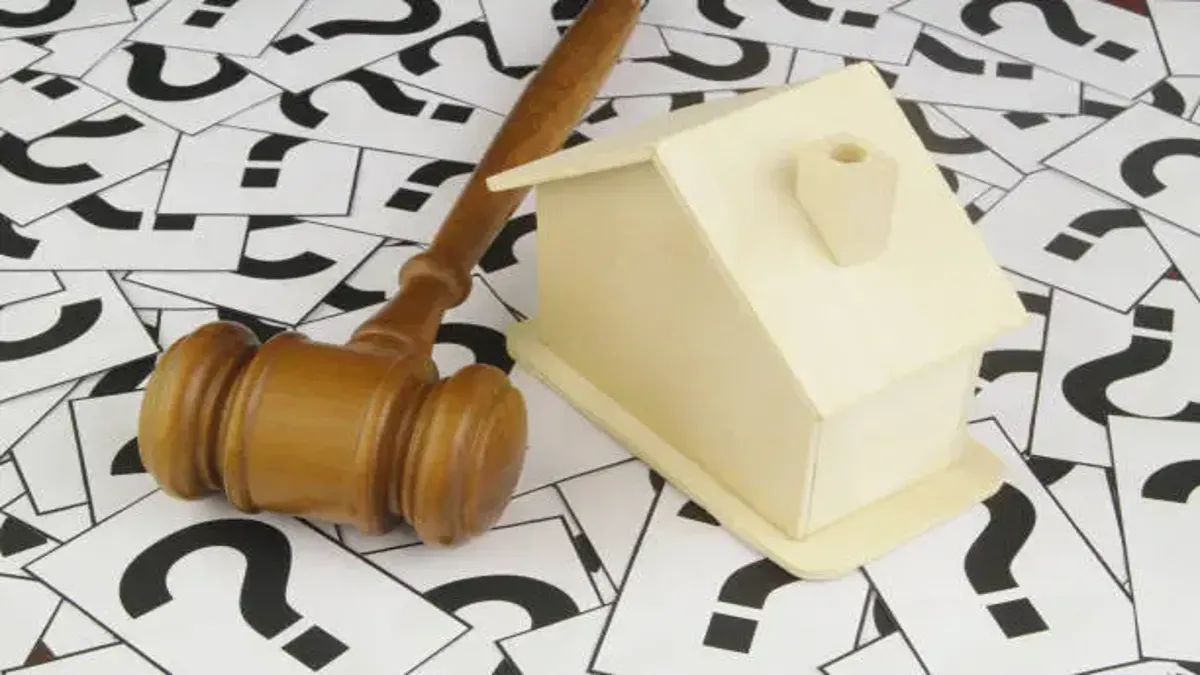Homeowners’ Associations (HOAs) are created to maintain property values, enforce community standards, and provide shared amenities for residents. While these organizations often succeed in creating well-kept neighborhoods, they can also face significant legal challenges when rules are misapplied, inconsistently enforced, or overstepped. Understanding the most common issues that land HOAs in legal trouble can help both board members and homeowners navigate community life more smoothly.
Selective or Unequal Enforcement of Rules
One of the biggest legal pitfalls for HOAs is inconsistent enforcement of their own rules. If an HOA enforces a rule strictly against one homeowner but ignores violations by others, it opens the door to accusations of discrimination or favoritism. Courts often view this as “selective enforcement,” which undermines the HOA’s authority and can result in costly legal disputes.
Consistency is key. Whether it’s about landscaping, noise, or exterior paint colors, HOAs must apply the same rules to all residents.
Discrimination and Fair Housing Violations
HOAs must comply with federal and state fair housing laws. Discrimination based on race, color, religion, sex, national origin, familial status, or disability can lead to serious lawsuits and government investigations. For example, refusing to allow a disabled resident to install a wheelchair ramp or service animal accommodation could be a violation of the Fair Housing Act.
Even well-intentioned rules can unintentionally cross the line. HOAs must review their governing documents regularly to ensure they don’t include discriminatory or outdated provisions.
Improper Handling of HOA Funds
Homeowners pay dues to their HOA with the expectation that funds will be managed responsibly. Mismanagement, lack of transparency, or outright misuse of funds can quickly result in legal action. HOAs are typically required to keep detailed financial records, maintain a reserve fund, and use money only for approved community expenses.
If funds are misallocated — for example, paying for board members’ personal expenses — it can create both civil and criminal liability. Transparency through regular financial reporting is essential to avoid these issues.
Overstepping Authority
Another frequent problem occurs when HOAs exceed their legal authority. Boards are limited to the powers granted in their governing documents and state law. If they attempt to impose new rules without following proper procedures, they risk lawsuits from homeowners.
For instance, an HOA may not have the authority to regulate activities inside a private home or to restrict freedoms beyond what is clearly stated in the covenants. Homeowners who feel their rights are being infringed may challenge the HOA in court.
Failure to Maintain Common Areas
HOAs are responsible for maintaining shared spaces such as parks, swimming pools, and landscaping. If they fail to keep these areas safe and well-maintained, the association may be held liable for accidents or property damage. For example, if a poorly maintained sidewalk causes someone to trip and fall, the HOA could face a personal injury lawsuit.
Regular inspections, timely repairs, and proactive maintenance plans are critical to avoid legal exposure.
Disputes Over Fines and Assessments
HOAs often issue fines or special assessments when homeowners violate rules or when major repairs are needed. However, if fines are excessive, arbitrary, or issued without due process, homeowners can challenge them in court.
Many states have strict requirements for how HOAs must notify residents, hold hearings, and allow appeals before fines are enforced. Failure to follow these procedures can invalidate the fines and lead to legal costs.
Retaliation Against Homeowners
Sometimes, when homeowners speak out against an HOA or its board, retaliation can occur — such as unfair fines, harassment, or selective rule enforcement. Retaliation is illegal and can result in lawsuits that damage the association’s reputation and finances. HOAs must treat all homeowners fairly, regardless of disagreements or personal conflicts.
What Homeowners Can Do
For homeowners, dealing with a problematic HOA can be stressful and frustrating. Understanding your rights, attending meetings, and reviewing governing documents are good first steps. In some cases, homeowners may need to seek legal advice or even consider whether staying in the community is the right choice.
For those looking to move on, it’s possible to learn how to sell a house with HOA oversight, even if disputes exist. By resolving violations, being transparent with buyers, and working with real estate professionals familiar with HOA communities, homeowners can successfully navigate the sales process.
Conclusion
While HOAs can play an important role in maintaining community standards and property values, they are not immune to mistakes. From financial mismanagement to selective enforcement of rules, legal troubles can quickly arise when boards fail to operate within their authority or neglect homeowner rights. Awareness and transparency are essential for avoiding conflict — and for homeowners, understanding how to protect your interests can make living in an HOA community far less stressful.

